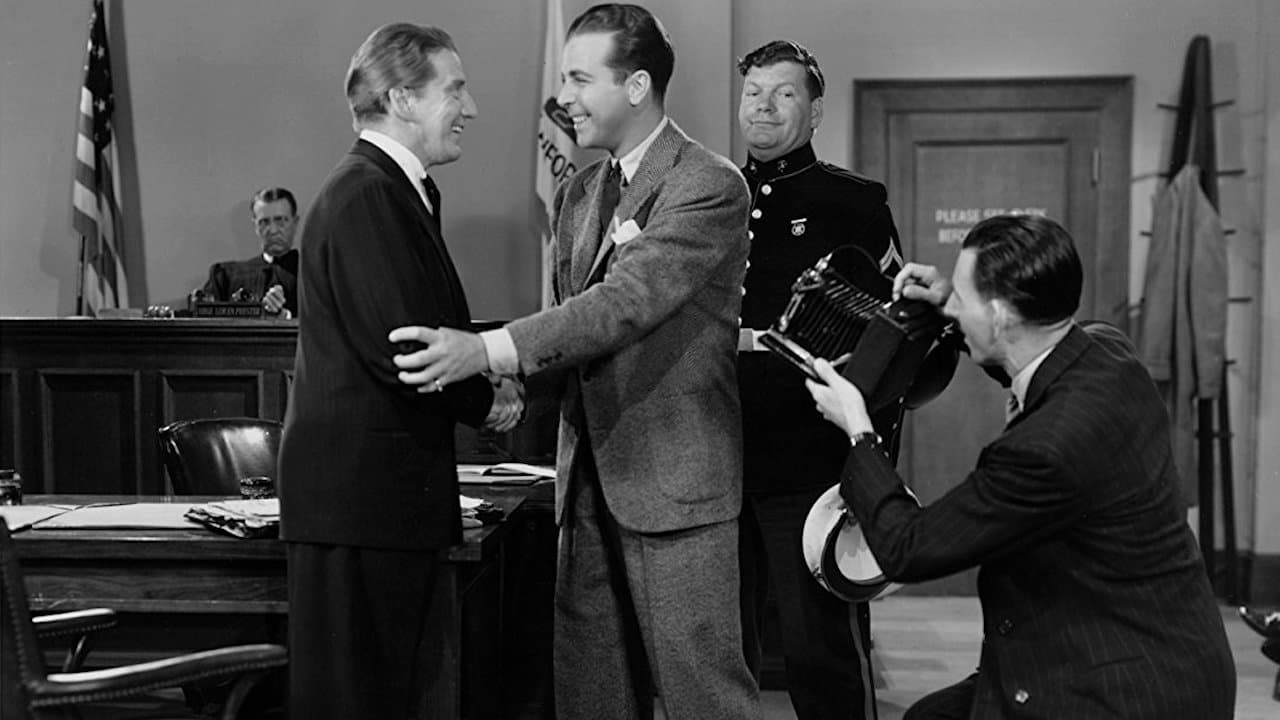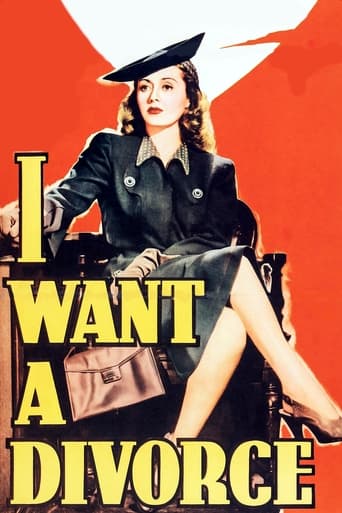Boobirt
Stylish but barely mediocre overall
Tacticalin
An absolute waste of money
Fairaher
The film makes a home in your brain and the only cure is to see it again.
Billie Morin
This movie feels like it was made purely to piss off people who want good shows
JohnHowardReid
Director: RALPH MURPHY. Screenplay: Frank Butler. Original screen story: Adela Rogers St. John. Photography: Ted Tetzlaff. Film editor: LeRoy Stone. Art directors: Hans Dreier and Ernst Fegte. Music composed and directed by Victor Young. Assistant director: George "Dink" Templeton. Sound director: Loren Ryder. Producer: George Arthur.Copyright 20 September 1940 (also U.S. release) by Paramount Pictures Inc. New York release at the Paramount: 2 October 1940. 75 minutes. This is the version reviewed below. However, a much longer cut of the film was released at the Sydney Mayfair on 15 November 1940. This version ran almost 95 minutes (8,539 feet).SYNOPSIS: An odd film subject for Hollywood to attempt. Beneath a clever sugar-coating of comedy, the script dares to treat divorce as a social evil and to put forward a well-reasoned solution.COMMENT: Paramount were obviously half-hearted about this pairing of real-life marrieds, Dick Powell and Joan Blondell. The film is no more than second-feature length, the direction is flat-footed and production values are distinctly moderate. Even Ted Tetzlaff's lighting photo¬graphy fails to measure up to his usual highly polished standard. Still the subject matter is certainly unusual for the censor-ridden 40s and represents a brave attempt to explore a commonplace situation that was virtually - so far as the cinema was concerned - taboo.
MartinHafer
Back when "I Want a Divorce" was made, the leads, Joan Blondell and Dick Powell, were married. What makes this ironic is that just a few years later, the pair divorced...and this movie has such a strong anti-divorce theme.The film begins with Geraldine (Blondell) being called into court to testify at her sister's divorce trial. The sister insists on divorce, though she never indicated why she didn't want to stay married and her husband wanted her to remain his wife. Through this case, Geraldine meets Alan (Powell) and they eventually fall in love and marry. They are happy but through the course of their marriage, Alan loses sight of this...and begins working too much as, you guessed it, a divorce lawyer. Will this couple survive or are they destined to be just like Alan's clients?
The film is very strange to watch today...not so much for its anti-divorce theme but because of its PRO-domestic violence bent. Yep, several times, folks make light of this and seem to think that a man needs to smack his wife around now and again...just to let her know who's boss! Undoubtedly, this will ruffle a few feathers in viewers. IF you can look past this, the film is modestly enjoyable but not much more.
mark.waltz
The wonderful Joan Blondell, star of all those tough girls with hearts of gold Warner Brothers films of the 1930's looses her spirit in this marital drama with comic overtones that tries but fails to land. She is first seen sitting in divorce court as a witness for her sister (Gloria Dickson) and is soon lamenting the end of her own new marriage, to rising hot shot divorce lawyer Dick Powell, the real life Mr. Joan Blonde if you want to switch tradition, and the future Mr. June Allyson after his own divorce from Ms. Blondell. I used to quip that Allyson costarred in this, and years later when Allyson and Blondell crossed paths on screen, it was in "The Opposite Sex", the musical version of divorce screwball comedy, " The Women".Much of the drama surrounds Dickson, ex-husband, ex Conrad Nagel and their son Mickey Kuhn. That slows this down to a snail's pace, providing too much sappiness and little detail into why Powell and Blondell's marriage is failing. Jessie Ralph scores the laughs as Blondell and Dickson's wise granny, with ex-Mr. Barbara Stanwyck (Frank Fay) providing a few laughs as Powell's client pal getting his divorce from a a Lupe Velez like spitfire. Too much going on other than the main plot takes away from the main plot which does provide a few real in sites as to why marriages end. When it gets away from Dickson and Fay, the sparks light momentarily, but it's not enough for the film to completely involve you. Those who know Blondell only from her cameo in "Grease" and portrayal by Kathy Bates in "Feud" will be interested in seeing her as the major star she once was, and film noir fans will be interested in seeing Powell outside his detective agency and those singing roles he pretty much gave up when the couple left Warner Brothers. As usual, Louise Beavers plays the bighearted housekeeper, always gaining attention in roles she kept one step above undignified simply through her grace and wit. A scene where Blondell coldly lets Beavers go due to the end of her marriage comes off awkwardly, but is strangely and uncomfortably real.
bkoganbing
Both Dick Powell and Joan Blondell who were married to each other at the time this film was made and had multiple marriages in their lives star in this rather little known Paramount film from 1940 about the tragedy of divorce. No doubt about divorce is a tragedy and the premise of this film seems to be if there were no divorce lawyers there would be no divorces, that married people would just work it out. Both Powell and Blondell had left Warner Brothers where they were stars in the Thirties to freelance.This film is terribly dated, but certainly in keeping with the Code which frowned on divorce at least in the abstract. Of course it's not so simple. Powell and Blondell meet during the divorce of Blondell's sister Gloria Dickson from Conrad Nagel each testifying at the proceedings under subpoena. Powell is in fact studying for the bar and when he passes it, he goes to work for high price divorce attorney Sidney Blackmer who was Nagel's counsel. Powell and Blondell go through the usual married people problems and the thrust of the film is that people reach for the divorce lawyers too easily. And that they are a particularly bad group of bottom feeding shysters. Held up as an example of how married folks should deal with things is the 50+ years that Blondell and Dickson's grandparents Harry Davenport and Jessie Ralph have lasted. The players are all sincere, but married life should only be as simple as I Want A Divorce makes it out. And five years later the Powells went and got one and married other folks.

